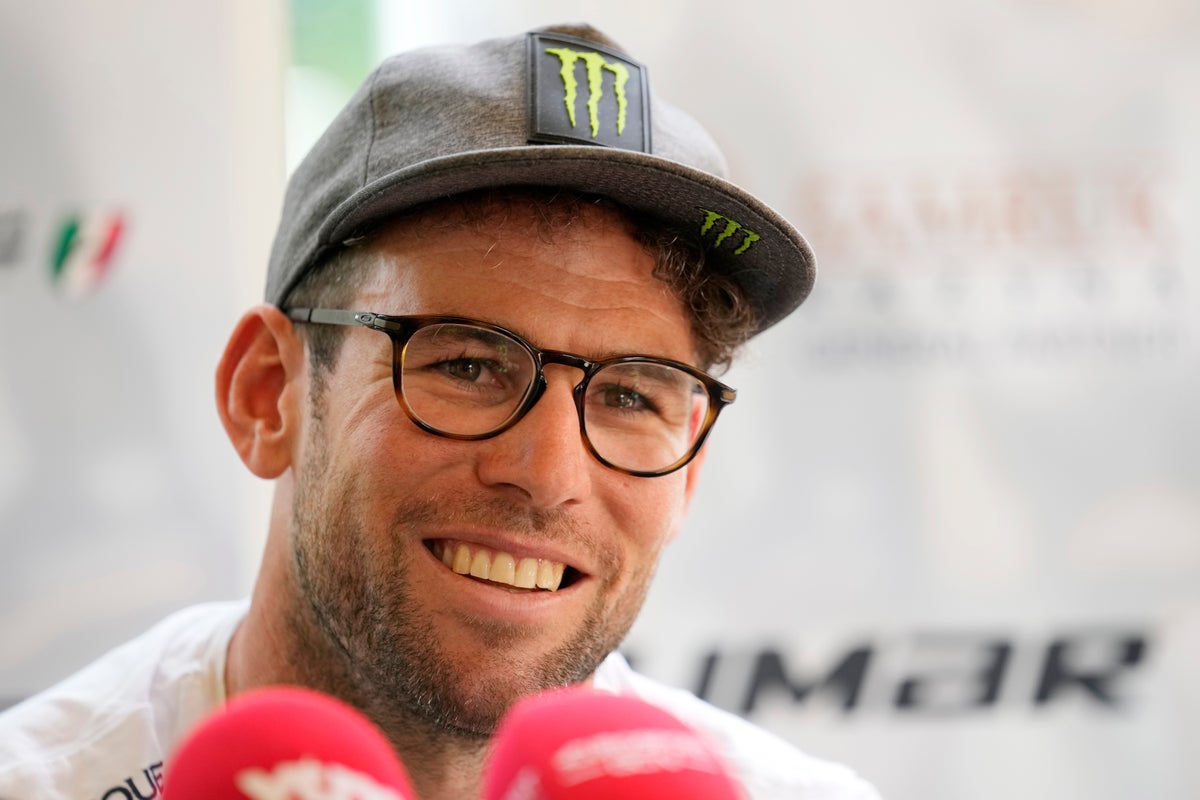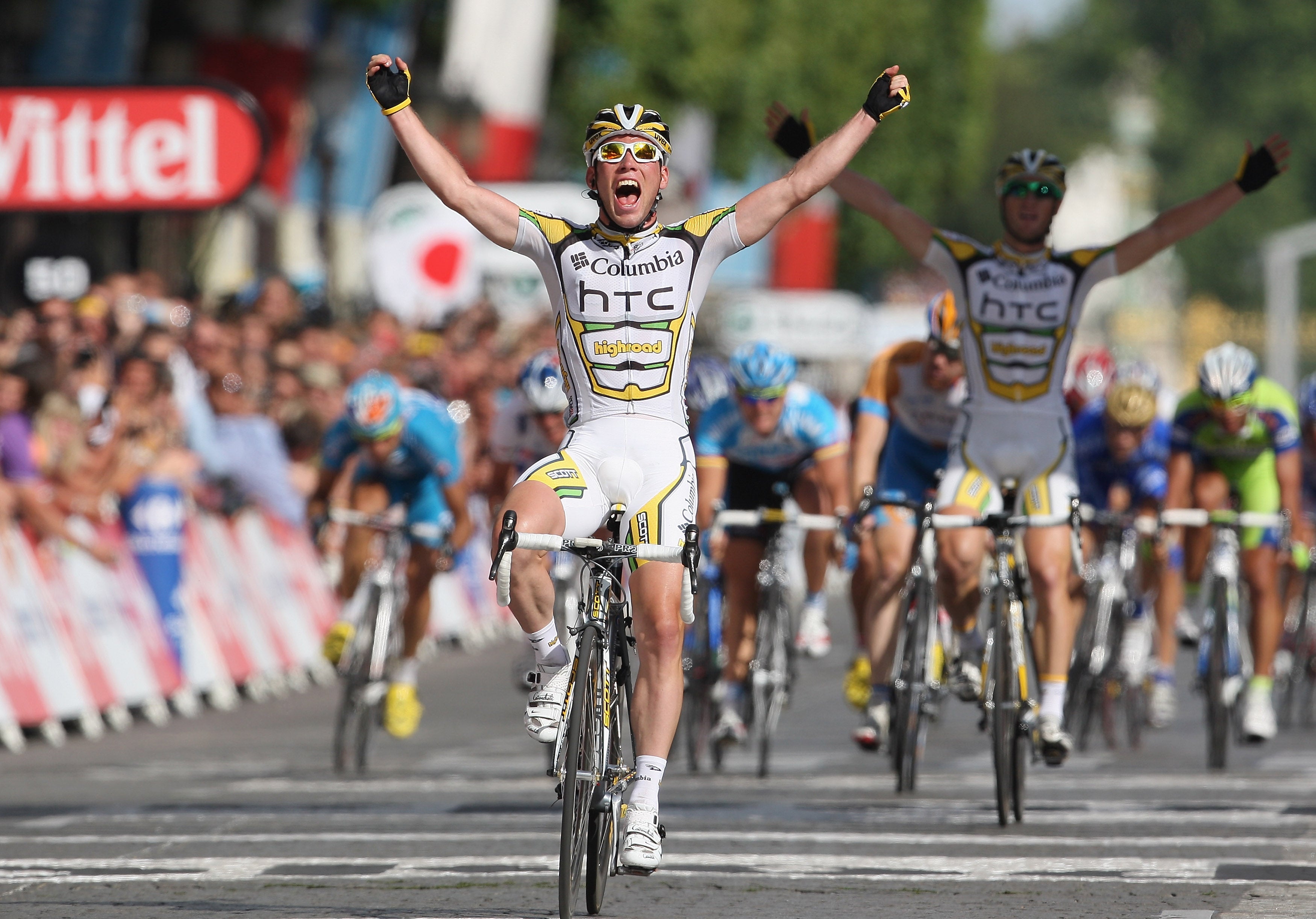
After 18 years riding on the sharp edges of cycling, in a career measured in millimetres and milliseconds, Mark Cavendish will stop at the end of the season. He will do so as the best sprinter of all time and perhaps Britain’s greatest cyclist too: an underloved sporting icon who pulled off the extraordinary over and over again.
His career has been rich in variety, from the blood and thunder of the velodrome to the agony of the Alps and everything in between. He is a world and Commonwealth champion and Olympic medallist on the track, and a world champion on the road too. But beyond all else, his career will forever be entwined with – and defined by – the Tour de France. As Cavendish put it after winning his first Tour stage for five years in 2021: “This race has given me the life I’ve had, and I’ve given it the life I had.”
Cavendish’s life can be counted not in years but by Tours. This summer holds his 14th race and his last crack at outstripping Eddy Merckx’s record of 34 stage wins, a tally Cavendish has equalled. Recent form suggests another win is still possible, having finished third on a stage at the Giro d’Italia last week, albeit unlikely. There are six flat days in this year’s Tour de France: six last attempts at No 35.
Whether or not he wins one more will not alter the rider he has been. No other sprinter has come close to his dominance, winning 20 stages in four years between 2008 and 2011, nor his longevity. Marcel Kittel and Peter Sagan are two rivals with ‘only’ 14 and 12 Tour de France stage wins respectively. Go through the list of heralded sprinters over a century of cycling – Erik Zabel, Freddy Maertens, Mario Cipollini – and no one has even half Cavendish’s Tour tally.
There is a certain romance in sharing the record with a cycling giant like Merckx, who was waiting at the finish line in Carcassonne to congratulate Cavendish on his 34th win two years ago, and if anything Cavendish’s tally is even more remarkable than the great Belgian considering the limited opportunities each year for the pure sprinters. He has won the race’s Paris finale four times on the Champs-Elysees, where just getting to the start line requires hauling heavy muscle over the Alps and Pyrenees, a suffering the rider in the yellow jersey will never know.
And yet there is a sense that for Cavendish’s achievements to be truly appreciated outside the cycling bubble, one more Tour stage would help hammer home the point. His sometimes abrasive and introverted nature has perhaps not helped here. But few British athletes can claim to be the greatest in their discipline like Cavendish can, and that talent has not always been celebrated in the same way as stars from other sports or even his peers within cycling like Bradley Wiggins, Chris Froome and Geraint Thomas.
They have all won yellow jerseys but they have needed systems in place to do it, teams precision engineered to dominate, so strong that their leader was sometimes interchangeable. Cavendish has benefited from the talent of his teammates too, particularly reliable leadout men like Mark Renshaw and Michael Morkov, but his is a career predominantly built on two piston legs, forensic preparation and a unique racing nous.
He would spend his evenings studying the road book and examining Google Maps to understand the next day’s route. He would dissect the final kilometre: the road’s undulations, the surface, every twist and turn right down to the optimum angle to enter the final corner. Cavendish embedded it all in his memory: ask him about the final throes of a stage he won 10 years ago and he can recite every pedal stroke.

As well as raw power, he has every sprinter’s essential dose of insanity to be willing to ride hip to hip at 50mph, to attack a minuscule gap knowing full well the pain awaiting should an open door slam shut. Most importantly, Cavendish holds the instincts to visualise those gaps before they appear, to surf wheels and judge exactly the right moment to explode.
“You can believe or you can doubt yourself,” he told The Independent in 2019. “It’s the difference between being one metre late that you’re gonna launch for a gap, then it’s three seconds later and you’re sat on the wheel and you’re about to lose.”
Over three gruelling weeks of the Tour de France the bulk of a sprinter’s work can be distilled down to a few key moments leading into a few flat finishes: win a stage by an inch and the Tour is deemed a success; lose and they have failed. Cavendish and the Tour is a love-hate relationship, one fuelled by the pain of defeat and an addiction to victory. “I say every time on the Monday after the Tour, ‘I’m never doing that again’. Then four days go by and I’m like, ‘I can’t wait til next July’.”
Now 38, this will be his last. One more Tour win would not change much in the eyes of those who have long enjoyed watching Cavendish arrive invisibly on the nose of a race and surge to the line. But edging ahead of Merckx might just cement his achievements in the minds of those who haven’t – one last surge into clear air on his own.







